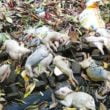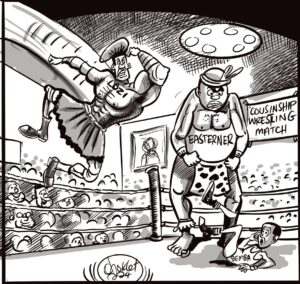At a business summit in Livingstone on 9th May 2018, a question booms out from the far right corner. “Mr. Kapesa, what in your view is the reason why collectively, indigenous Zambian businesses are NOT successful at higher scales?”
At a higher scale;
• You cannot work a full time job and run a business,
• A general dealer has no mastery to take their business a level higher, and
• Our entrepreneurs lack the discipline, the patience and focus to be in one business for the desired minimum TIME.
They Serve Two Masters
My first job in Stanbic Bank in 2001 was Manager Leasing offering farming equipment on lease to commercial farmers in Mkushi, Chisamba and Mukonchi Farm blocks.
I rarely saw a commercial farmer who works a job as an agricultural extension officer in Lusaka and then goes to the farm after 5pm on Friday evening.
When I qualified in 2005 as a Chartered Management Accountant (CIMA) Mohammed Irfan (Not his real name) tucked his CIMA qualifications and headed NOT to a day job BUT to Kamwala to manage a sweet and popcorn shop with his father full time.
My friend, Adrian had a passion for taxi business and an even deeper love for his job as Financial Controller at a named bank in Lusaka’s Cairo Rd. His taxi drivers “built” their own houses and a fleets of taxis in 3 years on the back Adrian’s sweat blood and tears carrying heavy monthly repair costs.
Does it sound familiar? You cannot serve two masters.
The Disrespect of Mastery
Last week, over a cup of strong Kasama Coffee, Rachel treated me to a long lecture on how she will invest in a mill to produce feed for her piggery and how she has to expand her farm for maize and soya beans. In this way, she will cut costs of production. I stopped her in the tracks before she could utter her next suicidal statement. “Invest in equipment to process and distribute finished pork products.”
Selling stationery today; tendering for ambulances tomorrow will keep you at the same level. A road contractor will tomorrow build and manage a lodge and sometimes own a farm.
Raising pigs is a different business model with growing maize and soya beans. Milling animal feed and distributing finished pork products are NOT the same as raising pigs. A small business raising pigs must FIRST master the art of raising pigs and grow the business over time. There is a reason why, since arriving in in Zambia over 20 years ago, Shoprite has broadly stuck to what they know best; super marketing. That’s why Zanaco is still a bank nearly 50 years since it opened in 1969.
My street based observations are that infant businesses are incapable of diversification. Those that attempt lose both money and direction.
Mastery of TIME
In his masterpiece, The Tipping Point, Malcolm Gladwell explores a theoretical point OF TIME at which a biological or corporate person attains mastery. He calls it the Tipping point. He locates this point at 7,000 to 10,000 hours of consistent, focused, hard unrelenting work. He echoes this theme in his sequel The Outlier, where he argues that genius is a fallacy. The genius in football star Lionel Messi is simply 10,000 accumulated hours of practicing one thing; week in week out since he joined the Barcelona Academy at age 9. FOOTBALL
After investing in laptops, tablets and consulting for schools for seven consistent years, you should start seeing and feeling the signs of success. Then, you can contemplate related diversification.
Public Procurement, Lending Policy Shifts
This brief portends several policy implications in the area of public procurement and credit profiling. If the promoter of an SME or the vision carrier works elsewhere, should banks risk other people’s money in that project? If the key promoter of an engineering and construction company works at a government Ministry, should public tenders be risked on one who has no faith in his own project?
We are the only ethnic grouping in Zambia who does business in this manner; not the Asians, Chinese, white farmers, and Lebanese confectioners. Who lied to us?
The next time you hear someone who runs a farm and teaches a class, don’t take them seriously. They have given up on stellar success as a farmer or the dream of a stellar teaching career has long been extinguished by the ravages of time and daily petty troubles.
James Kapesa is an author, entrepreneur and consultant living in Lusaka and working at Knowledgegates Group. For reactions to the article, contact him on 0977 455 163 or [email protected]












